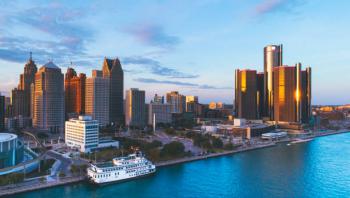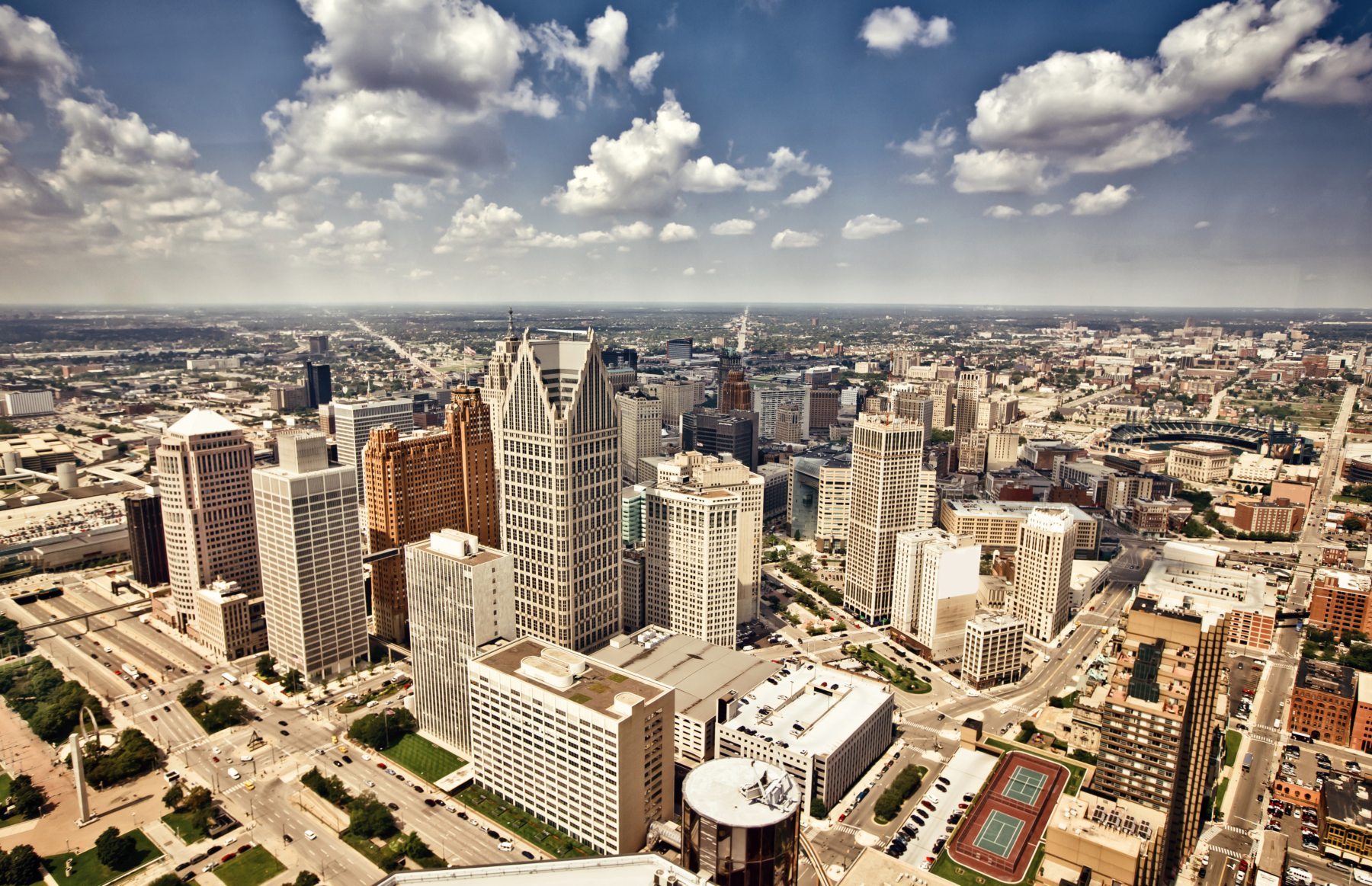
The iconic Detroit skyline continues to evolve. Lately, new high-rise developments have added even more charm to the historic landscape. From an economic perspective, the transformation of the Detroit skyline is a symbol of progress, especially as it coincides with the city's revitalized housing market.
One of the most substantial recent additions to the Detroit Skyline is the Residences at Water Square, an all-glass residential tower built on the historic Joe Louis Arena Site. The recent unveiling of the stunning tower stands as a testament to Detroit's remarkable recovery since its bankruptcy in 2013.
Developed by Sterling Group, the project was completed in just two years without any tax incentives. The speedy completion of the tower, attributed to innovative construction techniques, underscores Detroit's transformation without public assistance. As Mayor Duggan expressed, this further emphasizes the city's renewed vibrancy and attractiveness to both developers and real estate investors.
The 25-story tower boasts nearly 500 units, bringing plenty of new upmarket housing options to Detroit. Mayor Duggan praised the development for its pivotal role in fostering economic growth, and of course, in reshaping Detroit's skyline. With its luxurious amenities and prime location, this development caters to a discerning clientele eager to embrace downtown Detroit's burgeoning renaissance.
The Sterling Group project also demonstrates a dedication to labor and minority-owned businesses. It employed over 1,000 members of the state's union workforce, which stimulates even more economic progress for the city. But the Residences at Water Square is just one of several high-profile developments reshaping Detroit's skyline and promoting its economic growth.
In fact, Henry Ford Health revealed plans for a 21-story hospital tower, and District Detroit envisions multiple high-rises alongside various other developments in the city. At the same time as these new developments, Detroit’s existing landmarks are also undergoing transformations. Noteworthy renovations include the restoration of the 38-story Book Tower, the reopening of the Michigan Central Station, and the transformation of the United Artists Theater Building into mixed-use spaces.
Investors keen on capitalizing on Detroit's resurgence have ample opportunities to participate in its real estate market. The city's rising property values, coupled with its commitment to economic inclusivity and sustainable development, make it an attractive destination for investment.
As Detroit continues to evolve and thrive, investors can expect to see further growth and innovation in its real estate sector. The transformation of the skyline is a key indicator of this forward trajectory. With its rich history, vibrant culture, and promising future, Detroit stands poised to reclaim its status as a dynamic urban center. Today, the market is ripe with investment potential.

